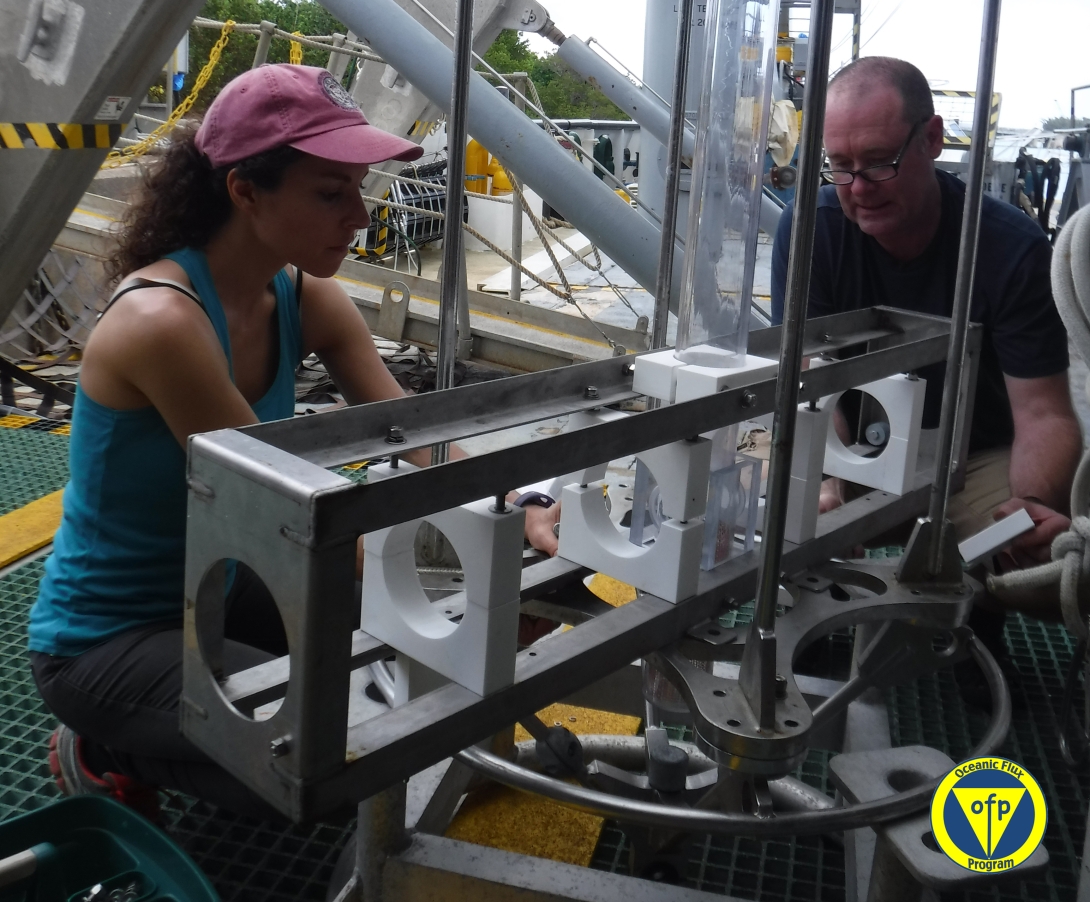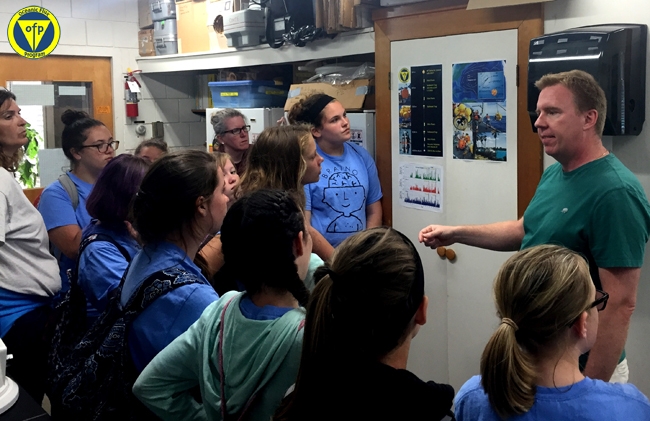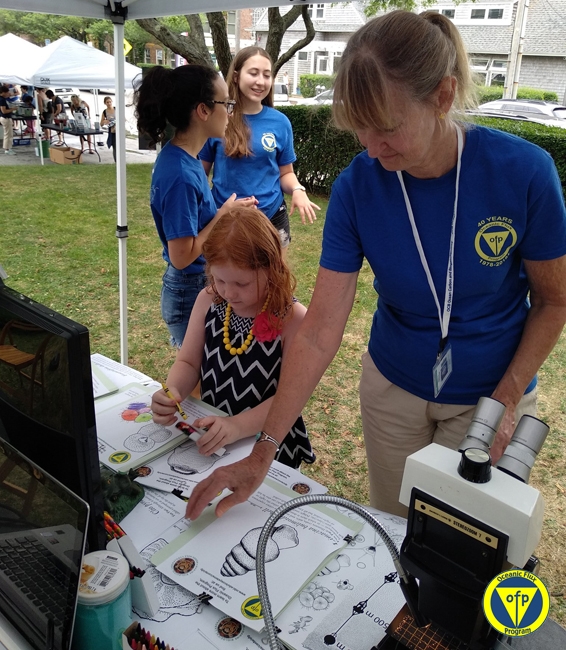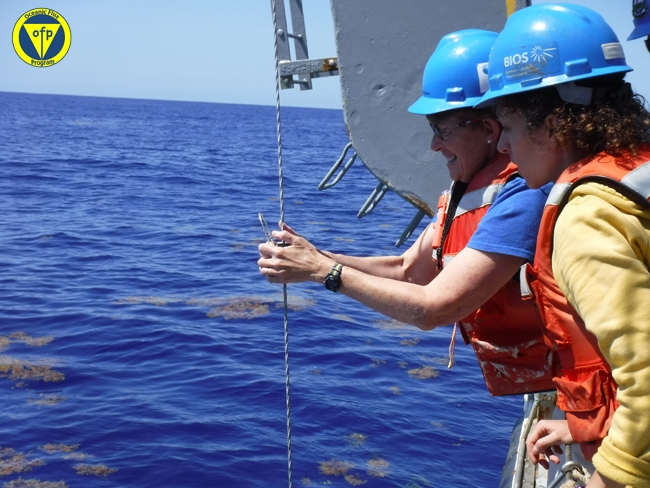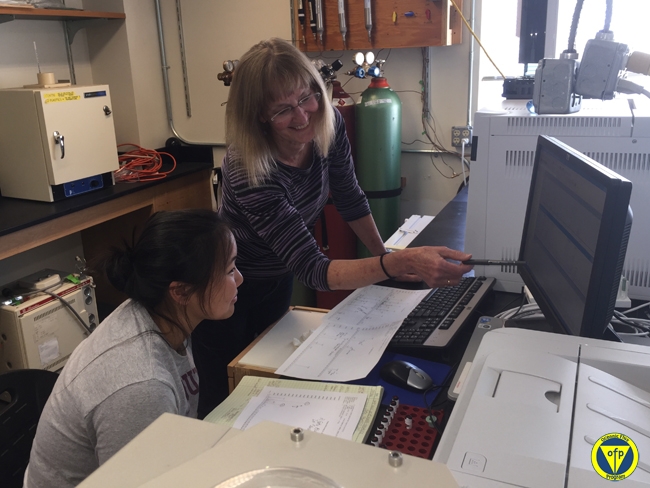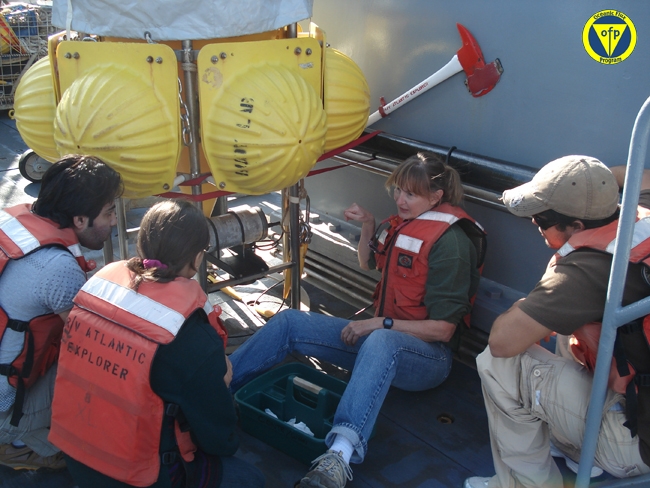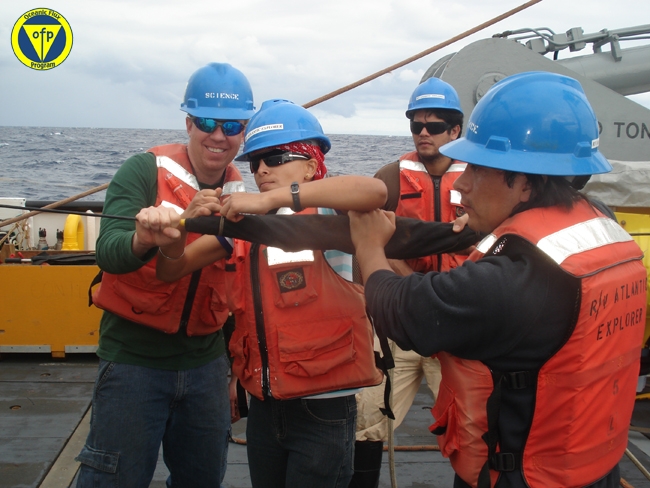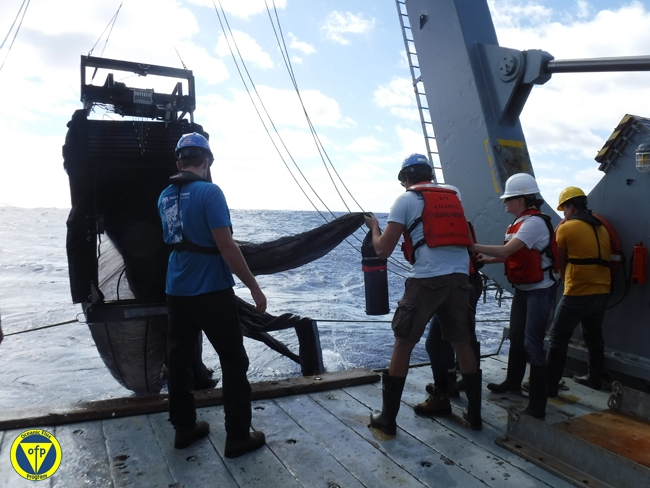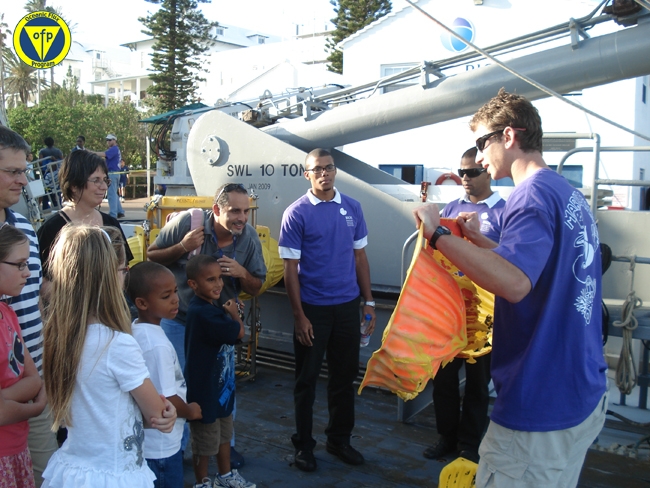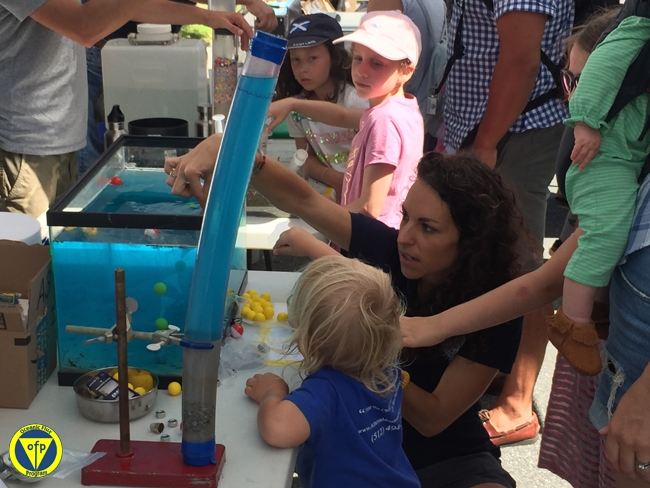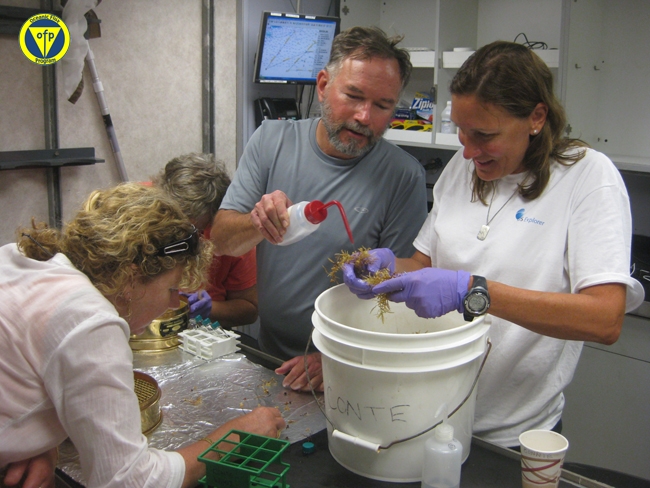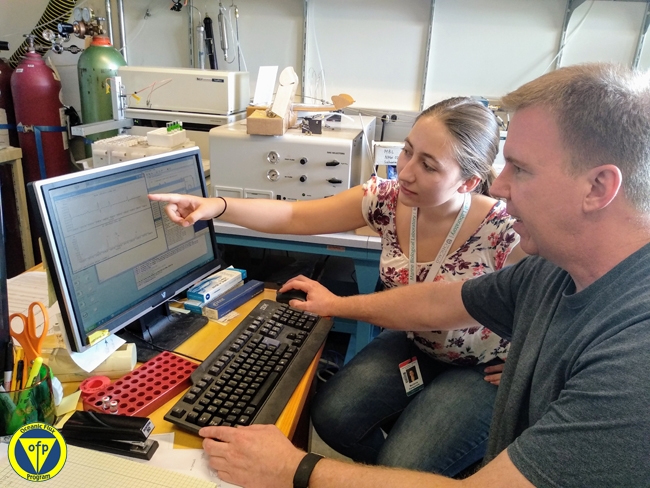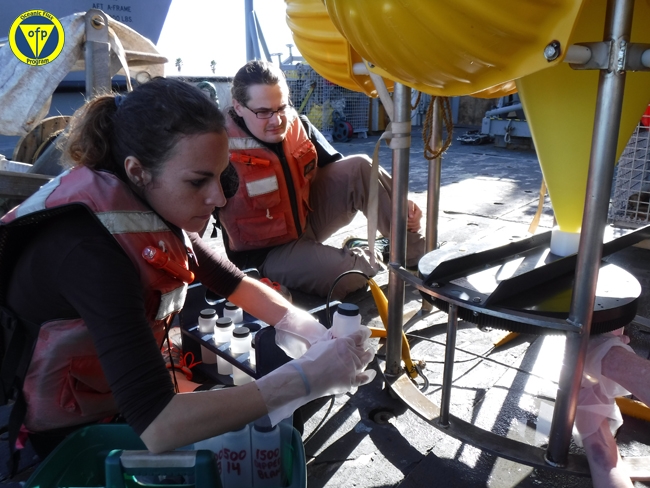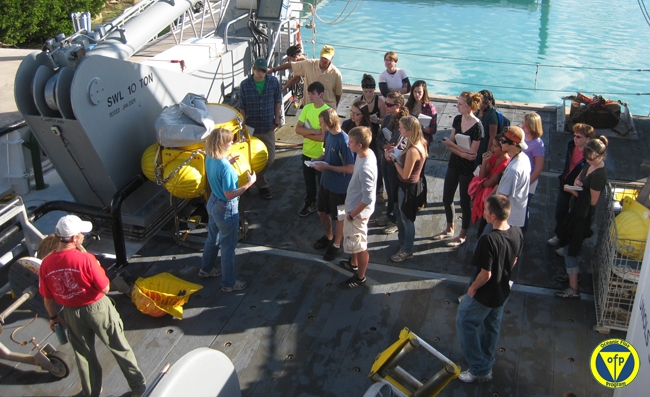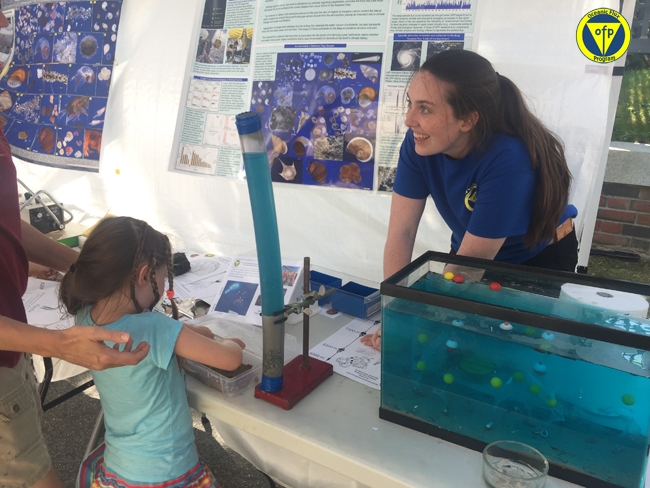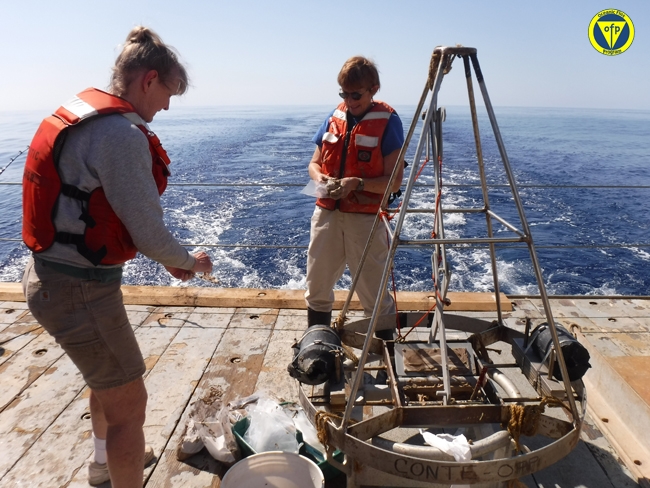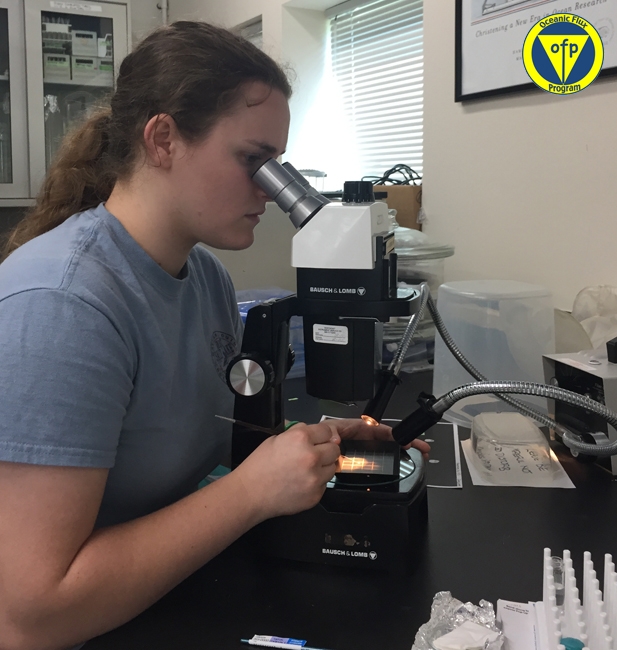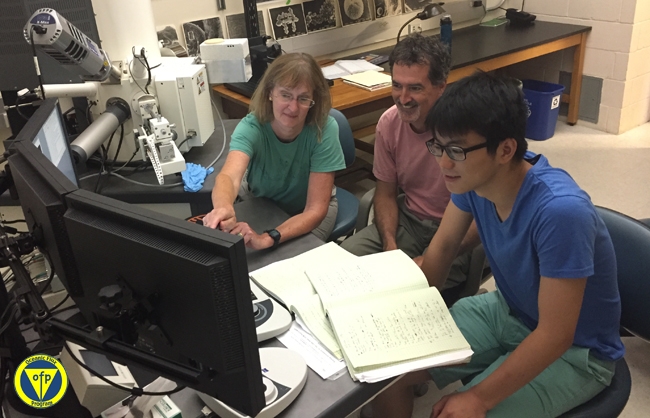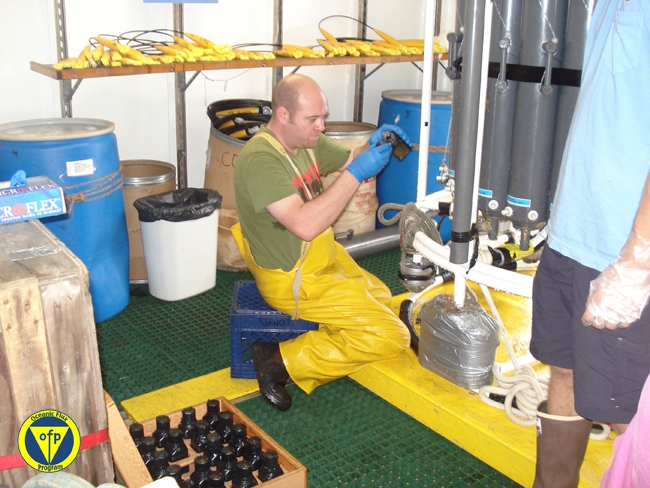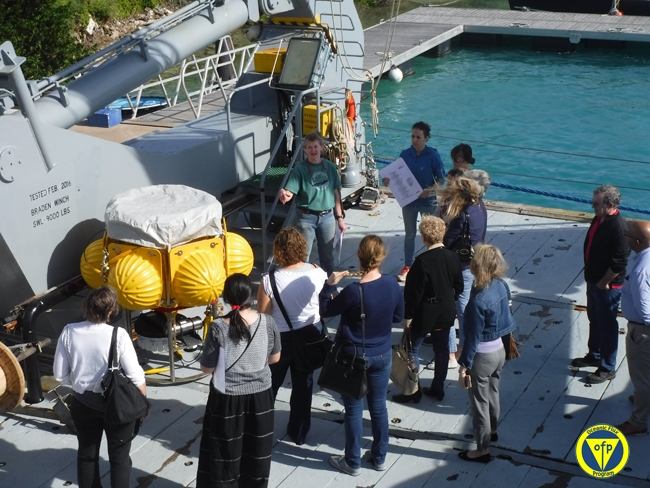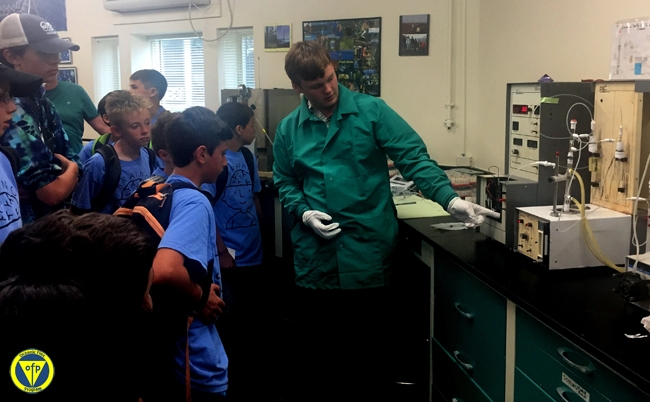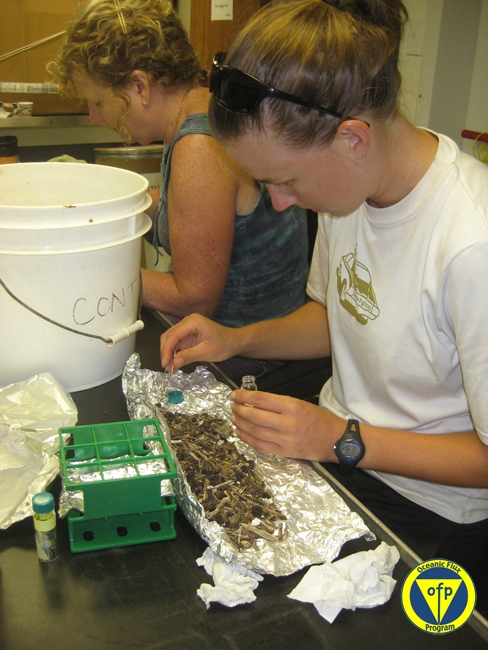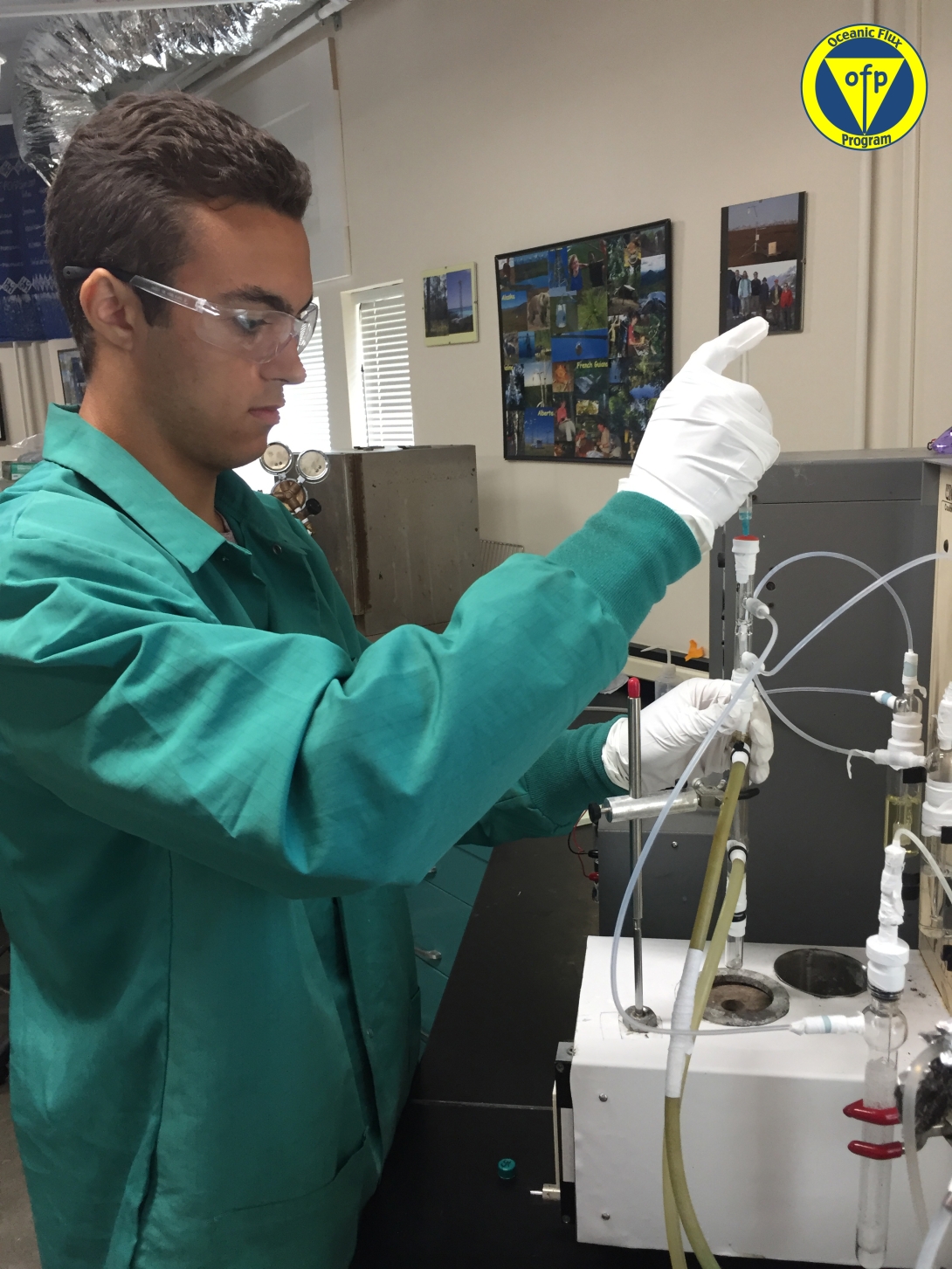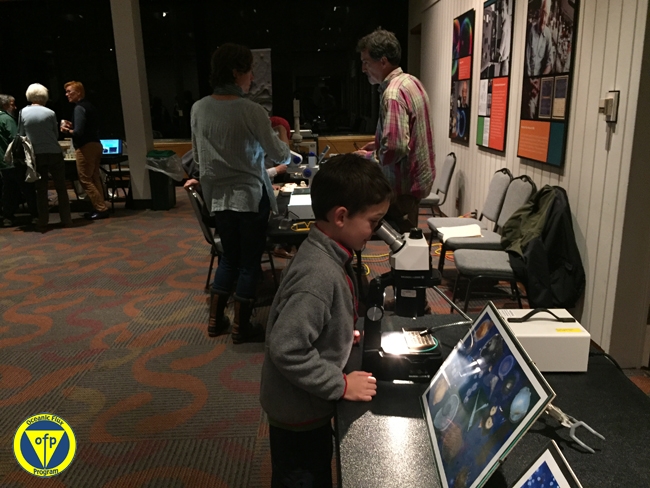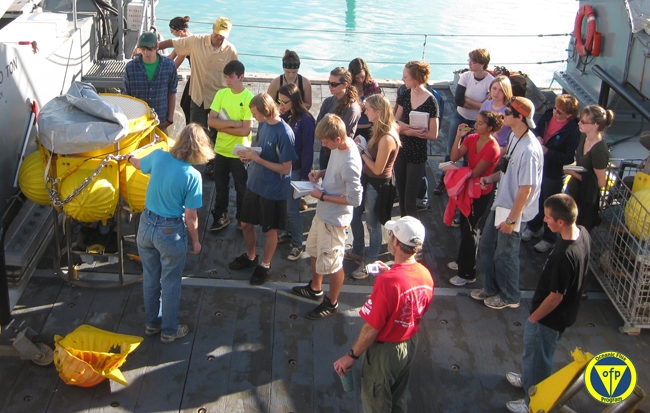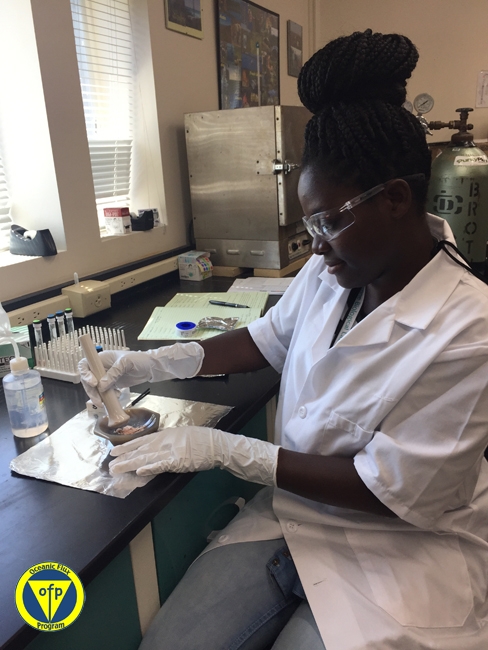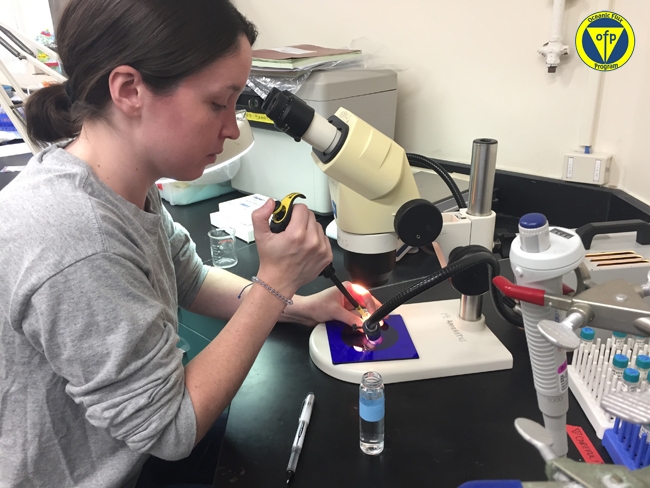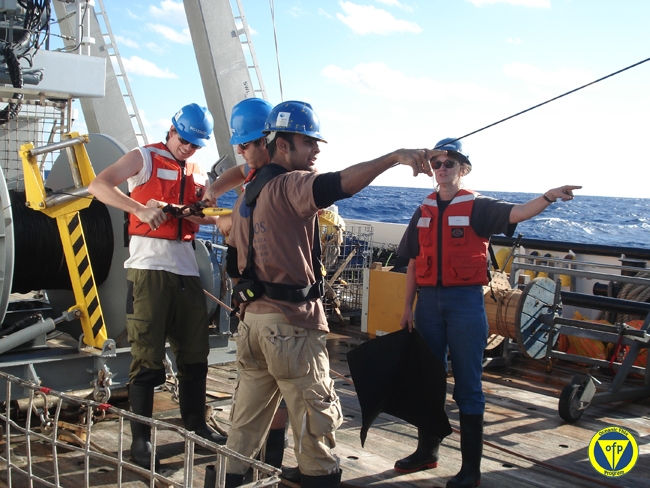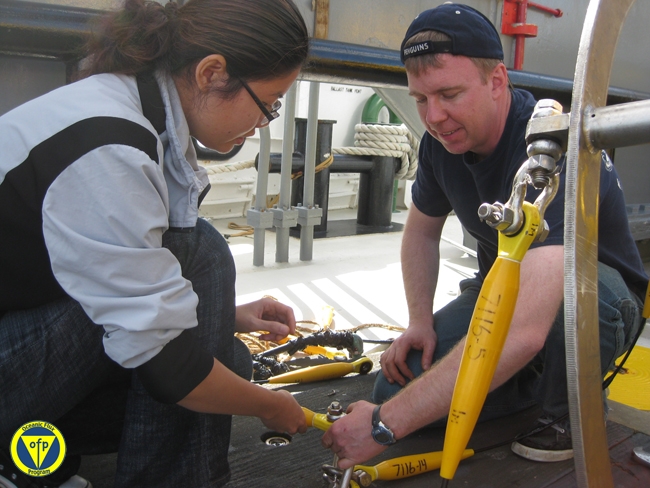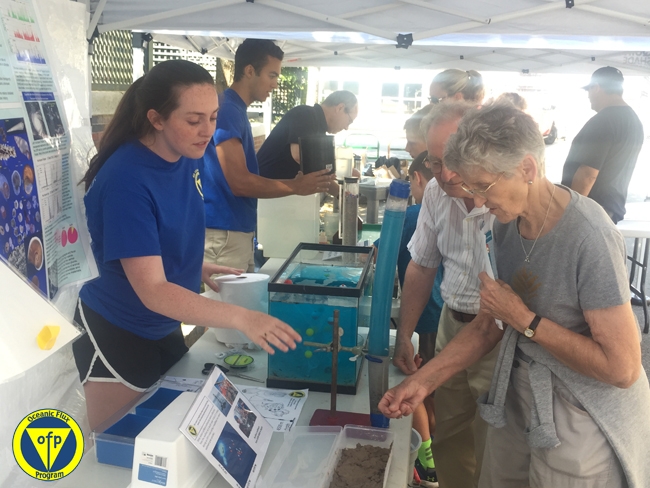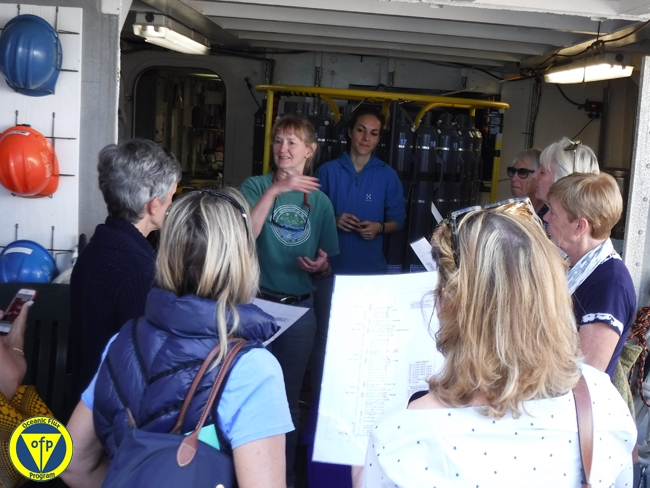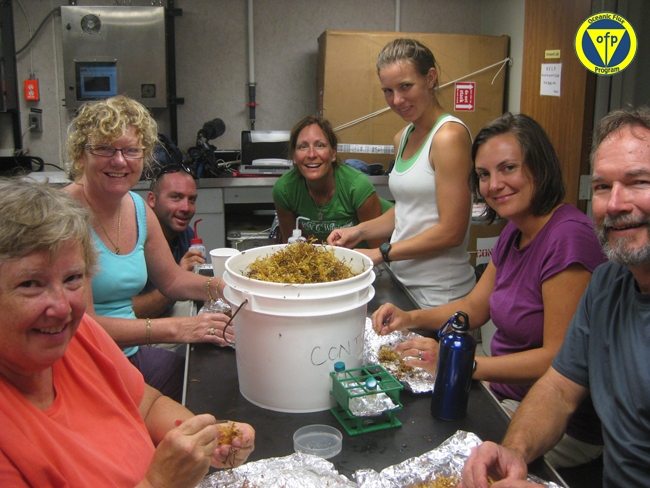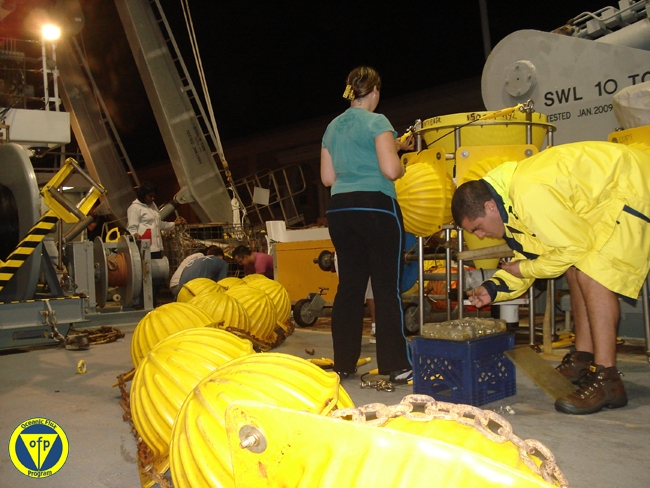OFP Collaborations & Educational Outreach
The OFP time-series encourages collaborations with scientists and educators in the US and abroad. The OFP has facilitated a diverse range of research and educational endeavors since its inception. OFP data are used utilized by researchers around the world, subject to a fair use policy. OFP sample material allows for a wide range of research that employs trace level chemical analyses. The quantitative OFP microphotograph archive opens up new possibilities for remote image analysis and other “virtual” investigations of the deep ocean flux composition.
The OFP welcomes educational collaborations in support of undergraduate and graduate education. The OFP has provide in-kind support for the MS and PhD research of students from universities in the US and abroad whose research utilizes OFP sample materials and has provided sampling opportunities on OFP cruises. The OFP has also provided at-sea training and sampling opportunities for undergraduates (such as REUs, course participants), graduate students and early career scientists.
The OFP has welcomed many educators and science writers who have made important contributions to OFP outreach objectives. Author Liz Cunningham has joined us on OFP cruises to experience oceanographic research firsthand (she even was able to get her hands into sediment from the ocean floor!). Author Christy Peterson interviewed the OFP team for research on her educational book Into the Deep targeted to Grades 6-12.
If you are interested in a potential collaboration that would require OFP sample material, would like to utilize the OFP database in your research, or are interested in joining an OFP cruise for sampling or educational purposes, please contact Dr. Maureen Conte at maureen.conte@bios.edu. Regarding any inquiries for OFP data or possible use of subsampled material, please review the Agreement for Distribution of Oceanic Flux Program Sediment Trap Material. The OFP dataset is archived on the NSF's Biological and Chemical Oceanography Data Management Office (BCO-DMO) site.
OFP in the News
MBL News details an interdisciplinary NSF-funded EAGER project, led by Rut Pedrosa Pàmies, investigating the degradation of plastics in the deep ocean and the role of microbial communities.
Boston NPR Station WBUR interviewed Maureen Conte and other scientists about the impact of the COVID-19 pandemic on long-term research programs.
SciTech Daily details how an OFP study reveals the effects of Hurricane Nicole on deep-sea ecosystems and the carbon cycle.
Online magazine Wired examines how hurricanes may be shaping large parts of the ocean, interviewing Rut Pedrosa Pamies about the effects on the deep sea. The article was picked up by many news outlets.
Local paper The Falmouth Enterprise showcased the opportunities for high school students at Woods Hole research institutions, highlighting OFP high school lab assistants.
OFP Resources for Kids
Author Christy Peterson interviewed the OFP team for research on her educational book Into the Deep targeted to kids Grades 6-12. Peterson's book provides a look at the diverse ocean ecosystems by interviewing the scientists at the forefront of oceanography about their exciting discoveries and the technology that they use in their research. The book is available in hardcover and electronically! Read an overview of the book in MBL News!
Former OFP Research Assistant Alana Thurston prepared a collection of OFP Coloring Pages that have made regular appearances at the Woods Hole Science Strolls. The pages are sketches of microscopic particles and shells collected in the OFP traps. Coloring fun for all ages!
